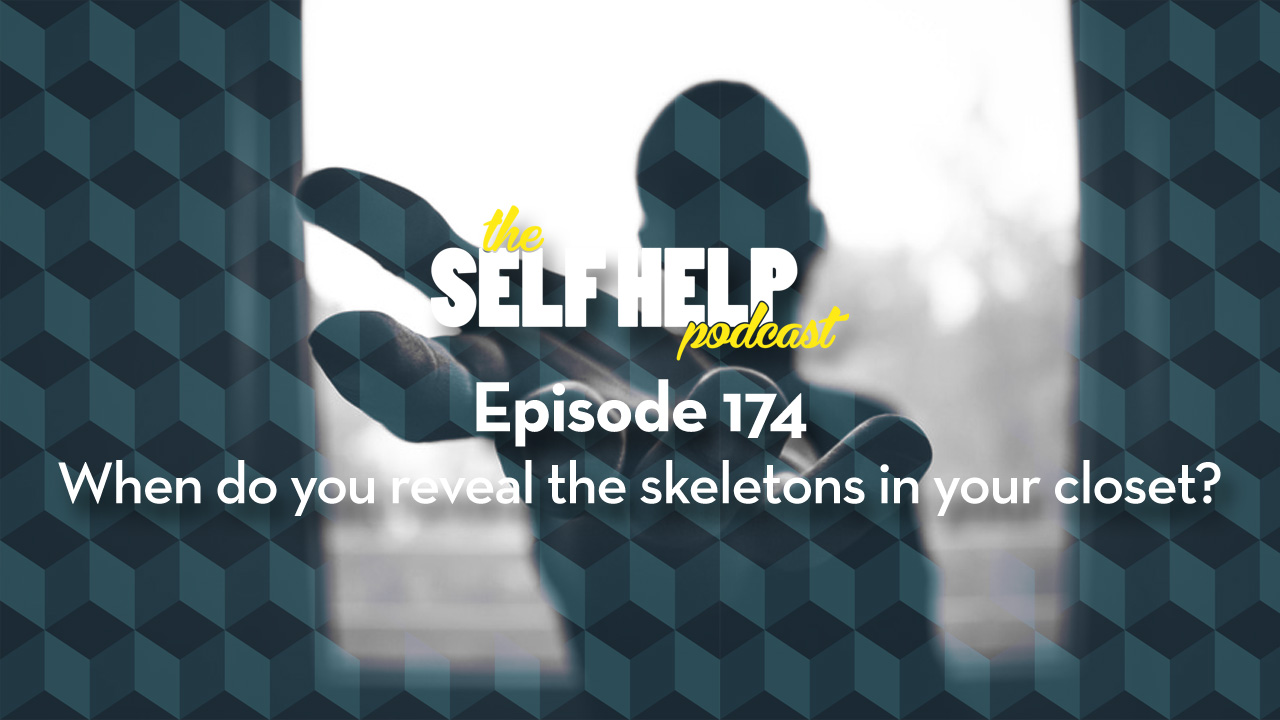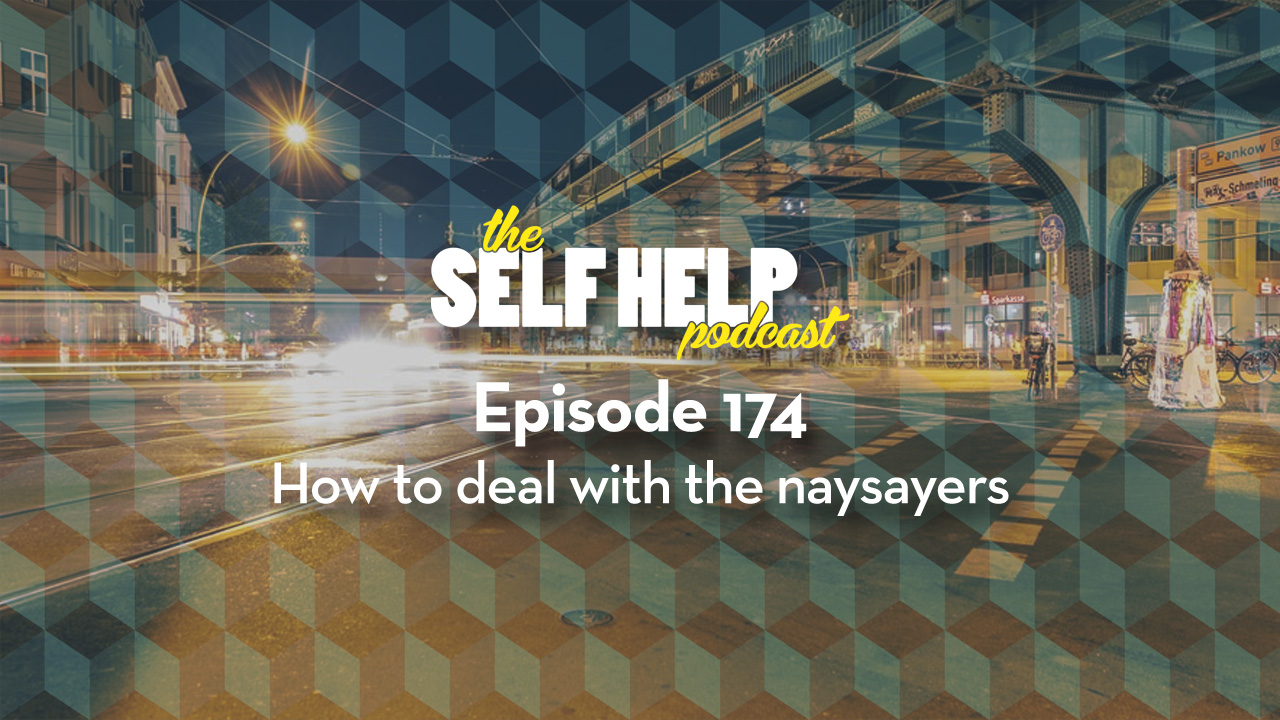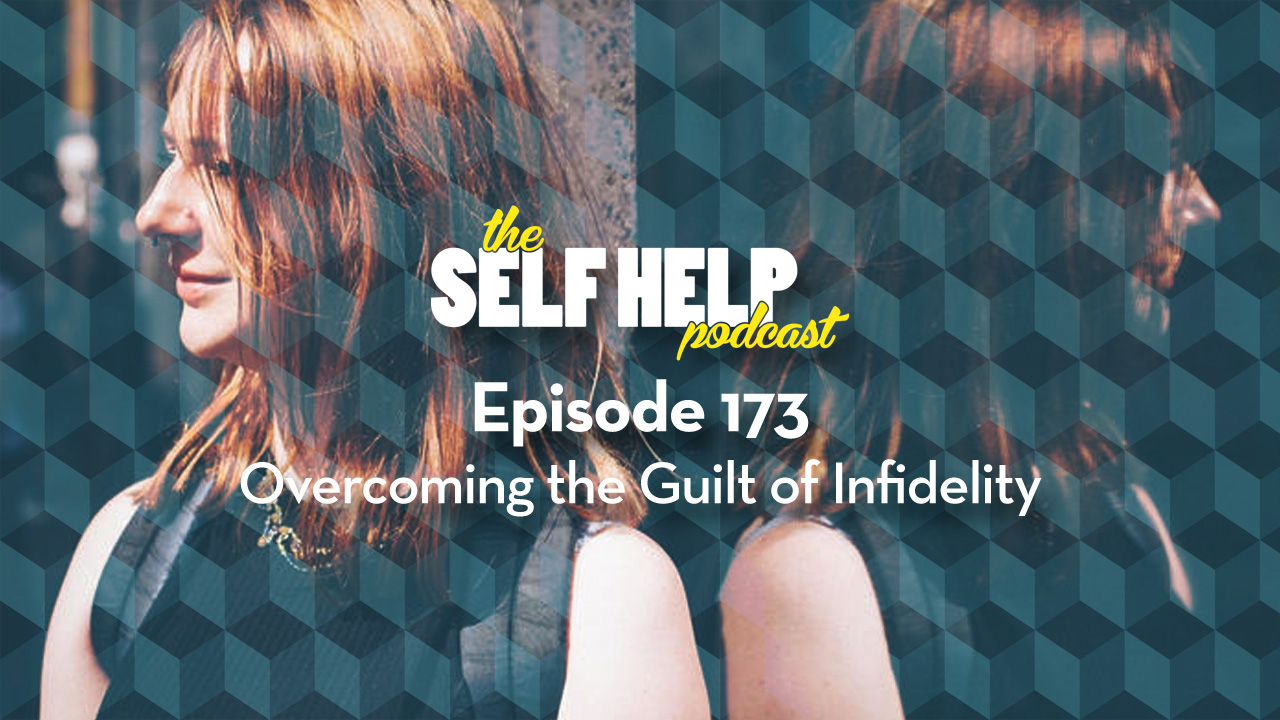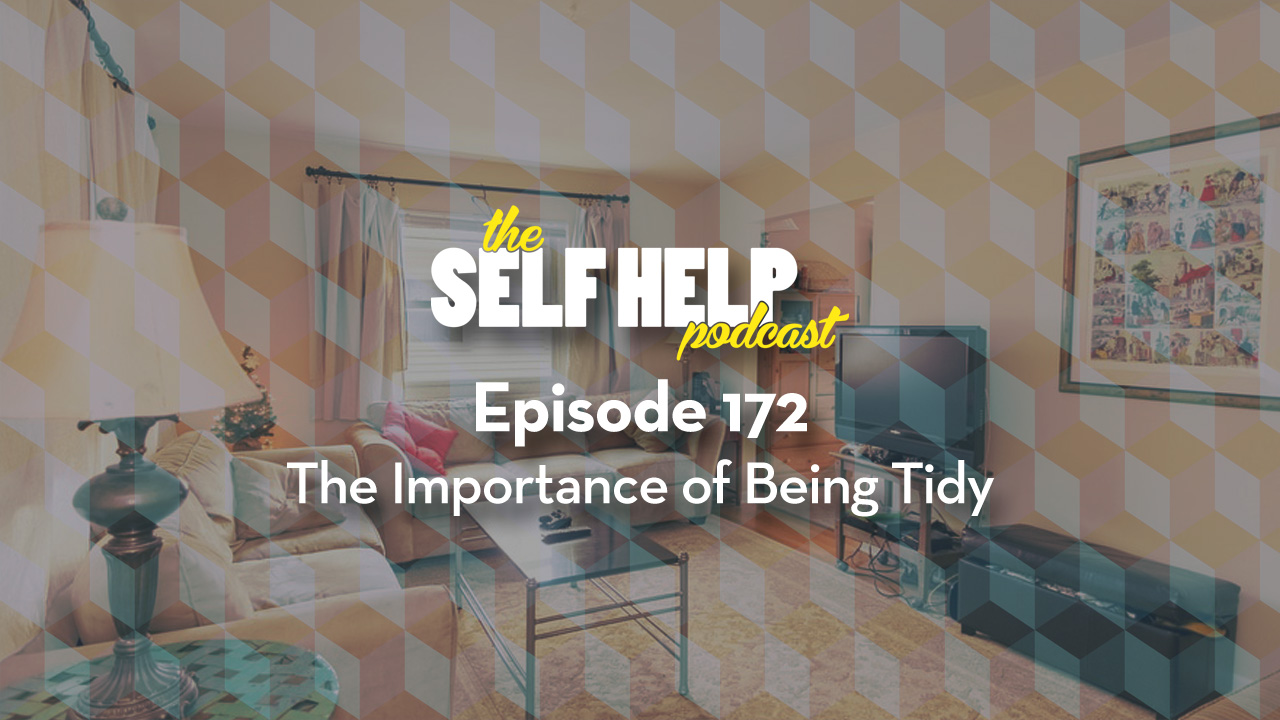Thanks to Rachel, one of our long term listeners, this week we found ourselves talking about author Marie Kondo and her book ‘The Life Changing Magic of Tidying’. It seems that the tidiness movement is huge and Marie has a massive following. So why should we tidy? Why should we want to?
If you think about it we only need to tidy up because we have stuff that needs tidying, we have belongings and the more you have then the more you need to tidy. I guess when the first person discovered or invented the first tool, perhaps a flint knife to cut meat, they started the trend of creating and collecting stuff and we have been building on it ever since. Over time, with more tools, we created more stuff until we developed the industrial revolution and the technological revolution so that now we are sinking under piles of stuff. And stuff needs to be made tidy.
Tidiness and tidying has become big business.The quote is that ‘tidying increases good fortune… and dramatically transforms our lives’. Perhaps it was the stuff that really transformed our lives.
A tidy desk equals a tidy mind
It has always been true that the way we manifest ourselves in the physical world describes what is happening in our internal emotional and mental world. When we look at how we organise our office, bedroom, kitchen and so on we are also looking at the insider of our mind,
Beware of being judgemental.
However, it does not follow that your ideas of tidiness and organisation are ‘the’ right way. When we talk about tidiness and organisation it is not that one size fits all. Different people approach organisation in different ways. The teenager that has adopted the ‘floordrobe’ as an alternative to the more common wardrobe may know precisely where everything is. Yet, from the outside the parents are driven crazy. It might just be that you see my level of organisation as chaos but it might work pretty well for me.
What is tidiness
Tidiness is when the world that I live in works well for me. If we were to make our own rules of tidiness and tidying, they might look something like this:
1: Does the current state of my environment disturb me?
2: Am I able to feel relaxed in my environment?
3: Can I find what I need when I need to?
4: Does my storage method keep my belongings safe?
(The should probably be something here about cleanliness as well)
And secondary
5: Does my environment disturb other people?
We each have to decide the way that we choose to live.
The Harmony of Wa
Seeing as we are talking about the Japanese art of tidying I think that we need to consider ‘Wa’. Wa was the first character in the Japanese alphabet and seen as the first principle.
(Wikipedia)
Wa (和?) is a Japanese cultural concept usually translated into English as “harmony”. It implies a peaceful unity and conformity within a social group, in which members prefer the continuation of a harmonious community over their personal interests.[1][2] The kanji character wa (和?) is also a name for “Japan; Japanese”,
When the Japanese lived in paper houses, so that the goings on of those next door became all to obvious or they did not keep the noise down, it was an offence to disturbed the Wa of the people next door. As a community people were expected to live in harmony with one another.
The concept and principal of living in harmony effects our community and society at large and also businesses, the family, couples, relationships and individuals. Also, on a global scale, the whole of humanity. The idea that Planet Earth has a spirit, often described as ‘Gaia’, suggests that when we live with Wa we are living in harmony with nature and not wrecking the planet. Wa is a pretty big concept and one that I have lived with for many years. I am aware of my own Wa, my own inner harmony and, should my Wa become disturbed, so that I do not feel right, then I do something about it. Sometimes that does include tidying, sorting out, clearing out and taking stuff to the tip or de-cluttering. Though when I do go to the tip I am appalled by the amount of stuff that we create and then waste by burying it in the ground. I am not sure that this dumping of stuff is good for the Wa of Gaia.
Therapy, growth and self development
When we live in balanced Wa life is not stressful. When we can live at peace with balanced Wa we can be the best and most productive version or ourself that we can possibly be. To live without Wa is to live with disturbance, disorder, disease, and disharmony. What the art of tidying is really showing us is one way that we might use to regain our Wa, for ourselves. The magic thing about the concept of Wa is that when we are each individually in harmony then as a society and as humanity we are in harmony.
Mindfulness, Wa and the tidy mind
For me, being mindful, is to live in awareness, and that means to have a tidy mind that allows for balanced Wa. Avoiding attachment and negative environments, to avoid cravings and longings, is creating the tidiness of mind that is mindfulness.
Tidying as a meditation
The Japanese stone garden is a meditation in Wa, a meditation of tidiness and order. This is where the art of tidiness and meditation meet in mindfulness and Wa. If we can tidy and create order with the same consciousness as the person in the picture, we can transcend the experience of time and space and enter the wonderful void of meditation.
There are two other things that we should also be aware of, the first of other people, the second is obsession.
Other people
The world, your house, company, community and so on is populated with other people whose ideas and Wa will be different to yours. Now, I accept that some people are mindless slobs who wouldn’t know Wa if it bit their bottoms but in general half decent people have their own version of Wa that works for them. The classic is the child’s bedroom that drives the parents round the bend. There often comes a point when we need to close the door and allow the child to develop their own concept of Wa. If you cast your mind back to your own teenage bedroom the likelihood is that your current state of Wa is different to what it was then.
Obsessive Compulsive Disorder
It is probably unfair to suggest that without stuff we wouldn’t have OCD because most obsessive symptoms are most commonly involved with repetitive thoughts and rumination not about gathering or ordering things. However, some people are obsessed with the world out their, and their need for cleanliness and order. Our collective production and collection of stuff over many generations opens up a whole new world for us to worry about. In the cave with a few tools, a couple of pots and a few animal skins it did not take long to get things in order. Once we have lots of stuff we need security and locks, banks, safes, and deposit boxes, insurance, vigilance, worry, anxiety and stress. Often from stuff also comes crime, theft, robbery, jealousy, envy, and so on.
Time to de-clutter
Now, once I have finished this I will be back up in the attic where I have created a studio. I am sorting out the bags and boxes that are under the eaves and sending stuff to the charity shops and the tip. And you know what? I find it really very satisfying. When I look back at the space I have created I do, genuinely, feel a sense of peace and harmony from the clarity of the space.
In my case I think Wa is ‘tidy attic equals tidy mind’.
Be happy, be tidy but don’t become obsessed, allow others their Wa as well.
Take care
Sean x





